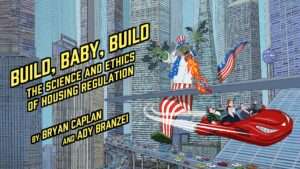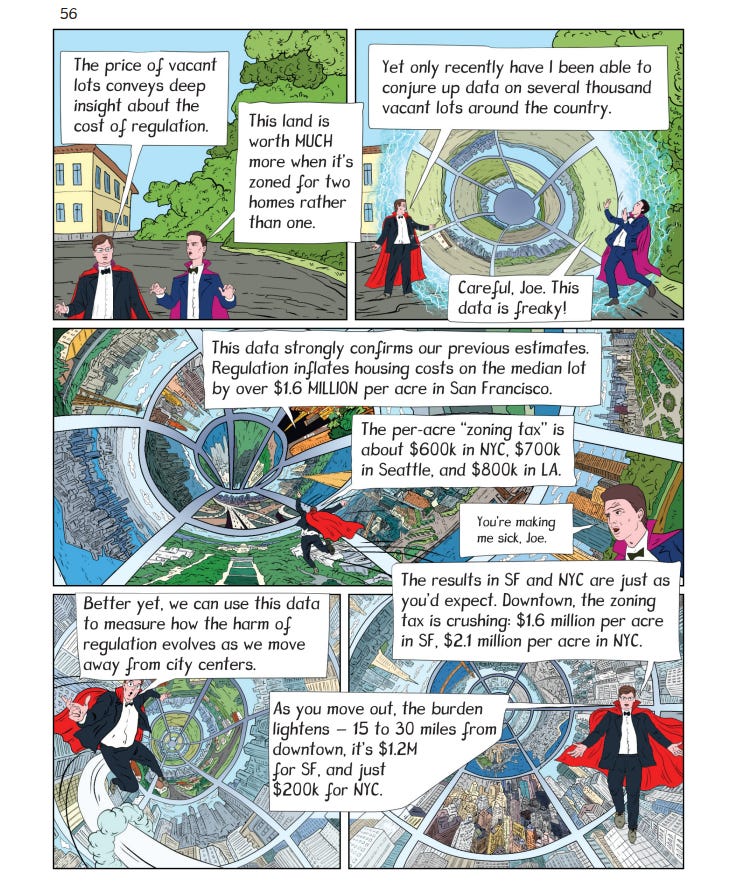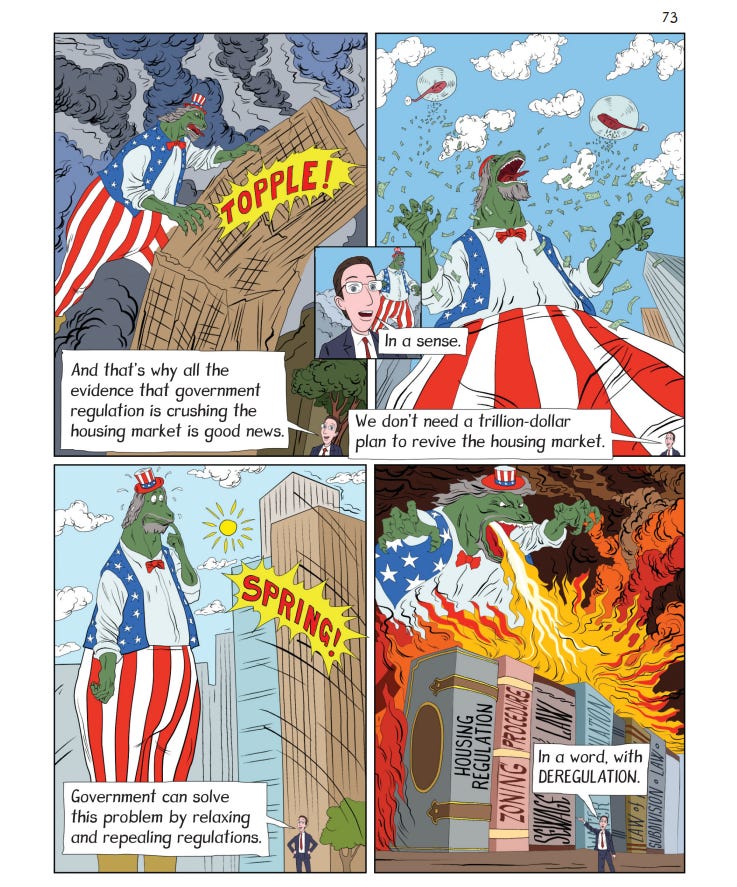The Volokh Conspiracy
Mostly law professors | Sometimes contrarian | Often libertarian | Always independent
Trillions
Why *Build, Baby, Build* should be a top libertarian priority. First in a series of guest-blogging posts.
In 1962, the New Individualist Review featured a joke letter from Chiang Kai-shek:
I was delighted with your last issue. I can testify from bitter experience that your Dr. Rothbard is entirely correct when he demonstrates that public ownership of lighthouses is the first step on the road to communism.
The point of the joke, on my reading, was not that libertarians were wrong to favor the privatization of lighthouses, but that they should make lighthouse privatization a low priority. For two reasons:
First, lighthouses are a tiny issue in the broad scheme of things. Divided by GDP, government lighthouse funding is a rounding error.
Second, the idea that privatized lighthouses would work well is speculative. Despite past experience and technological progress, we can't confidently predict that the reform will be a resounding libertarian success story.
You just have to flip these two reasons around to figure out what libertarians should prioritize. Namely: big issues with proven free-market remedies. Which was a major motivation behind my new Build, Baby, Build: The Science and Ethics of Housing Regulation. A non-fiction graphic novel, the latest Caplan book combines words and pictures to make academic research on housing an edge-of-your-seat experience.

I gradually grokked the horror of housing regulation over the last fifteen years. Economists like Edward Glaeser and Joe Gyourko just kept publishing papers showing that government regulation has raised housing prices far above the physical cost of land and construction.
And what regulation has ruined, deregulation can repair.
It's tempting to look at America's most expensive addresses and repeat the top three principles of real estate: "location, location, location." But this glosses over the artificiality of today's locational scarcity. Since the dawn of the skyscraper, technology has allowed vast populations to simultaneously enjoy the world's top locations. The government response, in turn, has been to make building skyscrapers in desirable places nearly legally impossible.
Indeed, U.S. regulators view almost all multifamily housing with deep suspicion. That's why they zone a supermajority of residential land for single-family homes. But even the single-family supply is heavily restricted, because governments routinely set high minimum lot sizes to force builders to waste most of their land. Physically fitting six mansions on an acre is easy, but legally you're lucky to get a green light for one.
Averaging over the whole U.S., a conservative estimate is that regulation has doubled the price of housing. It's much worse in places like the Bay Area and Manhattan, and a minor issue in the countryside. But as a recent paper by Gyourko and Krimmel shows, regulation raises prices almost everywhere that lots of people actually want to reside.
Granted, if regulation doubled the price of chewing gum, it still wouldn't make sense for libertarians to prioritize the industry. The key supporting fact is that shelter is a large share of the average American's budget — around 20%. As a matter of arithmetic, then, halving the price of housing would cut the cost of living by 10%, raising the standard of living by 11%. (As you may recall, 1.0/.9≈1.11).
Even better, deregulation will deliver these gains beyond a reasonable doubt. Laissez-faire in housing is not a futurist Libertopia. A hundred years ago, U.S. housing markets were close to laissez-faire, and the least-regulated regions of the U.S. are still close to laissez-faire. Furthermore, we don't have to blithely assume vigorous competition will arise, because vigorous competition in the construction industry already exists. The total number of builders is immense, and even in our regulated world, many are champing at the bit to expand.
Indeed, the construction industry could revolutionize our lives for the better if it simply were free to deploy the technology of a century ago! Work on the Empire State Building started in 1930, and was complete just 410 days later. Imagine what industry would accomplish if we combined the light regulation of the past with the advanced technology of the present.
Almost all political thinkers like to keep up with the news cycle — to talk about the latest, most salacious topics. I've indulged this temptation myself more than once. But if your worldview has merit, you can do so much better than opine on the scandal of the century of the week. Housing deregulation realistically promises to enrich humanity by trillions of dollars. And all government has to do to make this happen is stop preventing it.
To get the Volokh Conspiracy Daily e-mail, please sign up here.




Show Comments (115)